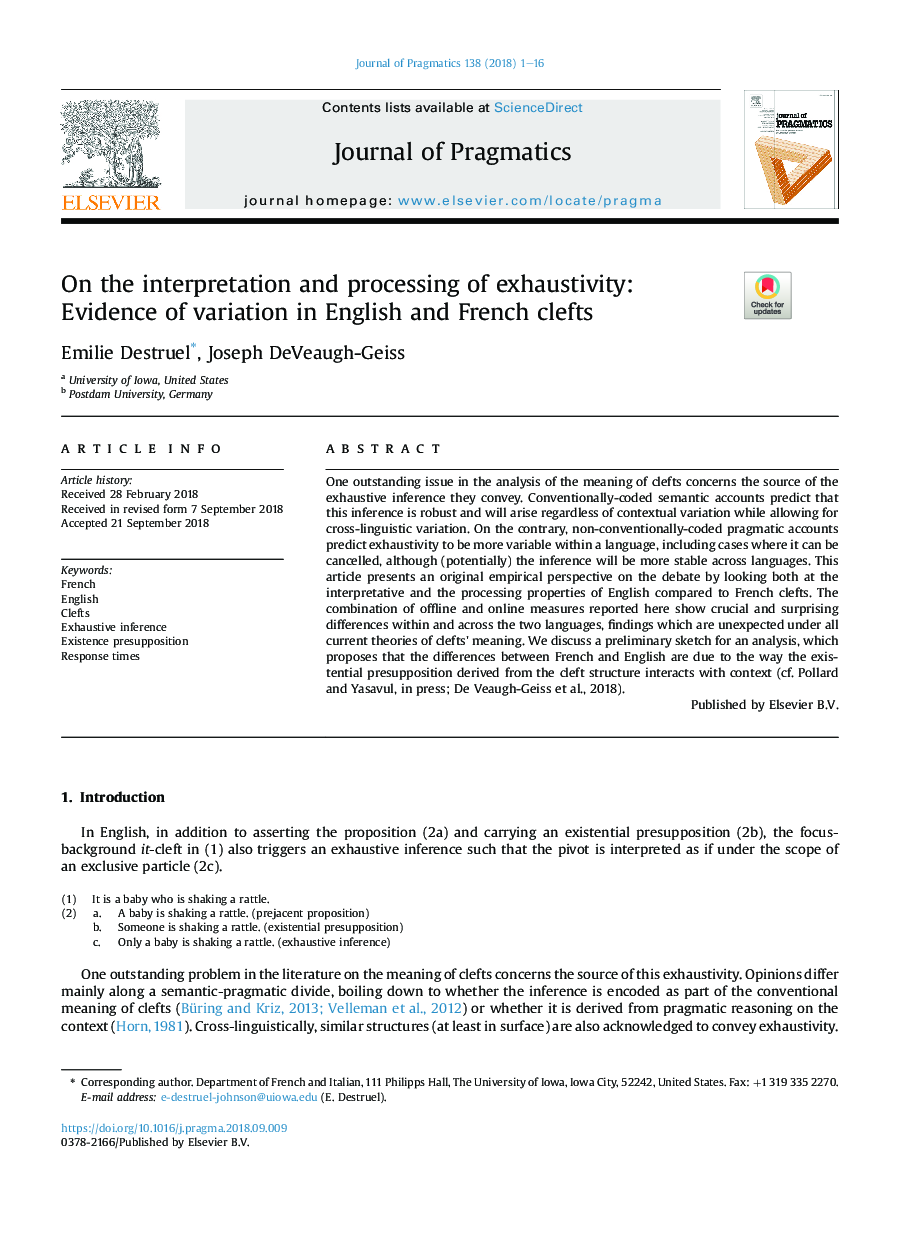| Article ID | Journal | Published Year | Pages | File Type |
|---|---|---|---|---|
| 11009045 | Journal of Pragmatics | 2018 | 16 Pages |
Abstract
One outstanding issue in the analysis of the meaning of clefts concerns the source of the exhaustive inference they convey. Conventionally-coded semantic accounts predict that this inference is robust and will arise regardless of contextual variation while allowing for cross-linguistic variation. On the contrary, non-conventionally-coded pragmatic accounts predict exhaustivity to be more variable within a language, including cases where it can be cancelled, although (potentially) the inference will be more stable across languages. This article presents an original empirical perspective on the debate by looking both at the interpretative and the processing properties of English compared to French clefts. The combination of offline and online measures reported here show crucial and surprising differences within and across the two languages, findings which are unexpected under all current theories of clefts' meaning. We discuss a preliminary sketch for an analysis, which proposes that the differences between French and English are due to the way the existential presupposition derived from the cleft structure interacts with context (cf. Pollard and Yasavul, in press; De Veaugh-Geiss et al., 2018).
Keywords
Related Topics
Social Sciences and Humanities
Arts and Humanities
Language and Linguistics
Authors
Emilie Destruel, Joseph DeVeaugh-Geiss,
